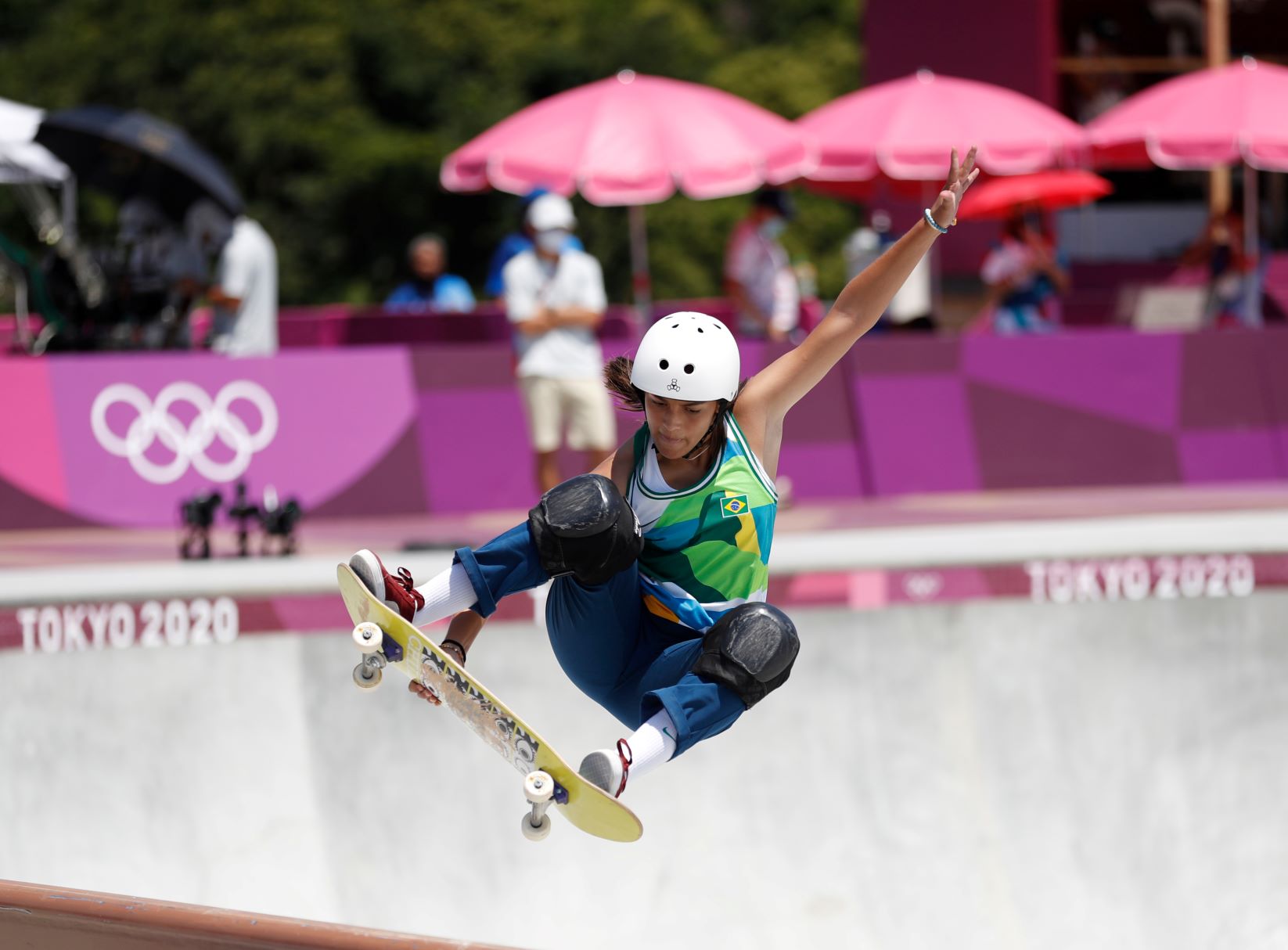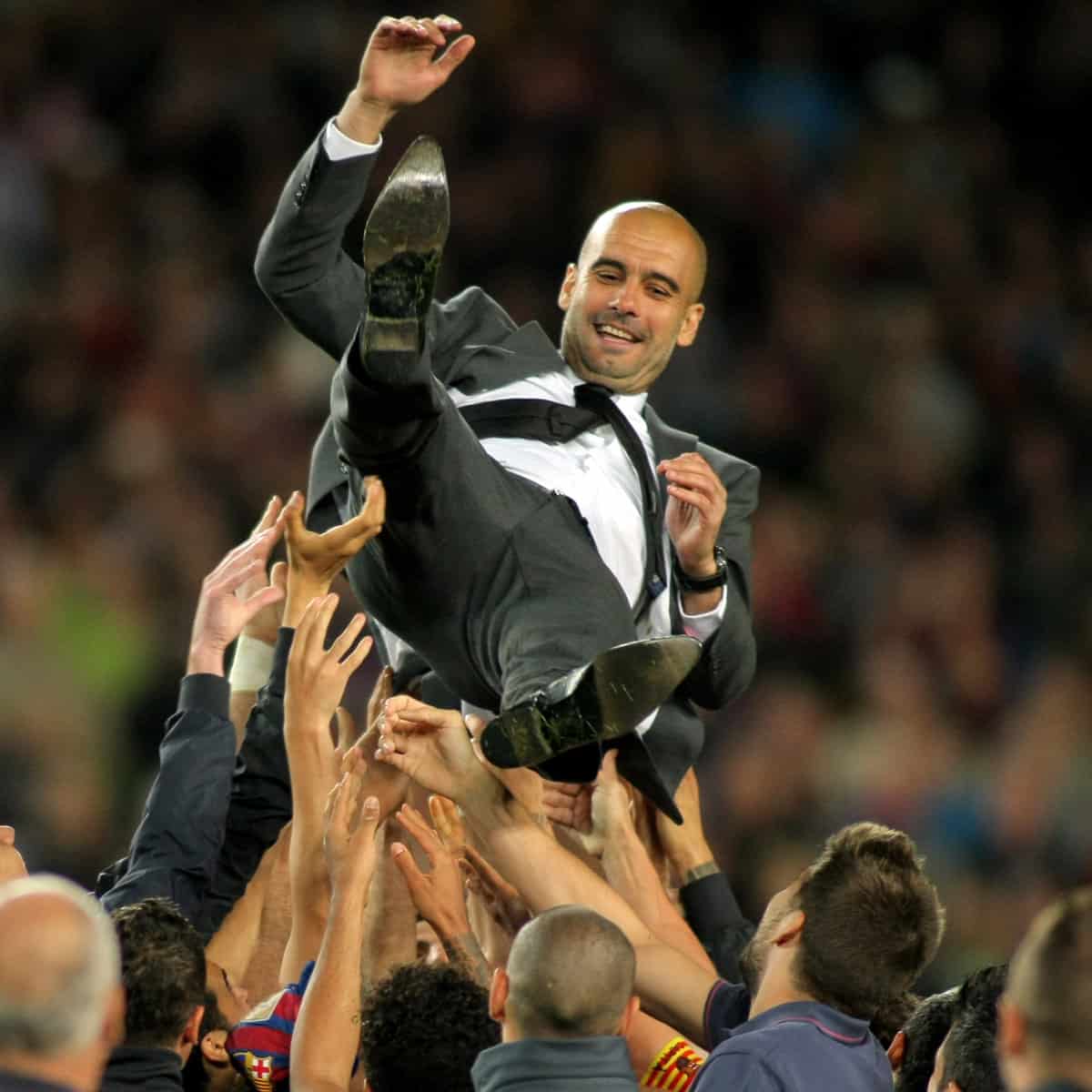8 Lessons For Business From Tokyo 2020 Olympic Games
There were captivating stories of success, triumph over adversity, shattered dreams and controversy and all of these peppered with insights and lessons for business leaders to take away and use in their own organisation
I’ve been obsessed with the Olympic Games ever since watching the Los Angeles Summer Olympics as an 8 year old child and wanting to be a part of the world’s most spectacular sporting event where there is so much history, drama and excitement.
The Tokyo 2020 Olympics promised to be like no other in more ways than one, and in the midst of a global crisis it delivered all that we had hoped for and more.
Here are the top 8 lessons for business that stood out for me.
1. Success doesn’t happen overnight and the journey will not be smooth
I met Tom Daley for the first time in 2006 when he was just 12 and he told me he would be Olympic Champion one day! He had absolute clarity of direction, determination and the confidence to go with it.

Tom arrived on the Olympic scene in Beijing in 2008 at the tender age of 14 and whilst he won bronze medals at both London and Rio Olympics (amazing accomplishments already) it was Olympic gold that he was really craving.
It is an understatement to say that it hasn’t been a smooth journey… he was bullied at school, his father died at age 40, he lived in fear of the consequences of revealing his sexuality before coming out in 2013. His life and sporting career have been scrutinised by the press since that Olympic debut at age 14. But Tom’s mental strength and resolve to achieve his childhood ambition shone through –he showed all the characteristics of resilience – consistently working hard, bouncing back from failures, determination and incredible patience – attributes that apply to anyone on a mission to success in business or sport.
Despite not wining in Rio and feeling like it was the end of the world, he refused to give up and 20 years after that Olympic dream was born, together with his courageous and talented synchro partner Matty Lee, he was rewarded with an Olympic Gold Medal.
In business, we often forget that success doesn’t happen overnight and we can get impatient and in our haste, fail to stick to our plan and do the necessary work to grow the business. Tom Daley’s gold medal was two decades in the making and proves that persistence and consistency are keys to achieving results.
2. You can’t control the result
“You can’t control the result, so I just focused on my race plan.” Said newly crowned Olympic BMX Champion Beth Shriever in her post race interview when asked about how she dealt with the pressure of being on the start line of her first Olympic final.
Her aim and focus was to deliver her best ‘performance’ because ultimately the result can depend on many external factors ranging from your competitors, the weather, referee decisions and even luck. Letting go of thoughts of results and medals allows you to focus your attention on the present moment rather than squandering it on the future.
It’s an important lesson that you can apply to any walk of life. Whilst we need outcomes to give us clarity of direction, once that is established it has to be put aside and the attention has to switch to the ‘how’ and the now.
This focus on the process helps to manage the nerves, the unhelpful self-talk and all of the factors that are out of your control.
The message was echoed by 12 year old skateboarding sensation Hiraki Kokona from Japan who won silver and said, “I wasn’t nervous, my coach told me that I can ride well if I concentrate on myself. I thought about my own performance so I wasn’t concerned with others’ performances.”
The lesson for business is clear, focus on the process and the result will take of itself.
3. Performance levels and standards are constantly rising
Shaunae Miller-Uibo from Bahamas became a double Olympic Champion in the 400m on the athletics track, having won gold in the same event in Rio 2016. In Rio she won in a personal best time of 49.44 seconds, but Miller-Uibo like most athletes, was well aware that the same performance would be unlikely to be good enough to win next time.
Sport like the business world is constantly changing, performance levels and standards are always rising. Therefore, you’ve got to be constantly moving forward, exploring boundaries, continuously innovating and improving. If you are content with past success and stand still you will quickly be overtaken by your rivals. Don’t let complacency creep in, instead strive for CANI – an acronym that stands for Constant and Never-Ending Improvement. Assume improvement is always possible and force yourself and your team to find out how.
Interestingly improvement might sometimes come from change. Just because you win once, it doesn’t mean that you replicate everything 100% again. You might retain some of that winning formula, but some things might need to change too. As an athlete this is determined by asking the question ‘Will this make me go faster?’ In business you might ask ‘Is this going to add value or improve performance?’
Shaunae Miller-Uibo didn’t rest on her laurels, in Tokyo 2020, five years after her first 400m Olympic gold medal she won gold again in a new personal best time of 48.36 seconds, almost a full second faster – huge in 400m terms!
4. Selflessness – the finest characteristic of a team player
Whilst most wouldn’t consider the Decathlon event on the track to be a team sport, Cedric Dubler from Australia showed us just what it means to be a teammate. In the 1500m, the final event of the decathlon, Cedric was out of medal contention, injured and exhausted but he refused to quit, so he strapped his hamstring and decided to give his remaining effort to his training partner Ash Moloney.
Ash was in with a shot at a medal and Cedric, rather than running his own race chose to pace Ash round the 1500m – he ran in front of him, as if he were towing him. Whilst he probably got little physical benefit from this, the presence of his teammate in front of him and his support as he roared at him in the final lap were enough to help him ignore the pain he was no doubt in and sprint to the finish and a bronze medal.
Members of high performing teams work for each other and the greater good, they strive to make each other better and Cedric Dubler was an exemplary example of that – he sacrificed his own race for this teammate.
5. Age is not a barrier
There was no finer example of this than at the Women’s Skateboarding event which made its debut at the Tokyo Olympic Games. We witnessed the fearless heroics of the likes of Yosozumi Sakura, Hiraki Kokona, Rayssa Leal and Sky Brown – all medallists from the Skateboarding events, who are 19, 12 and 13 years old respectively!!
Prior to the Games, Sky Brown told reporters, “I feel like it doesn’t matter how old you are, I’m tiny and I’m going to be in this huge competition! You can do anything, no matter what age you are.” Such inspiring words from a 13 year old!
In business, we often think we are too old or too young to make a difference but it is no different to the Olympics where Sky Brown and her fellow medallists have shown that age doesn’t have as much to do with success as determination, hard work (Sky has been skateboarding since age 4!), and creativity.
Sky Brown made history at the age of 13 becoming Great Britain’s youngest ever Olympic medallist.
At the other end of the spectrum Mary Hanna of Australia also showed that age is irrelevant – she competed in her 6th Olympic Games at the age of 66 in the Dressage event and finished a remarkable 6th place.
Success in later years is not reserved just for the likes of the horse riding team, in the world of business I am reminded of Harlan Sanders who started Kentucky Fried Chicken at the age of 62 and Warren Buffet made more money after he was 65. Age is just a number, it doesn’t need to be a barrier.
6. Great performance requires great mental health
Simone Bile’s surprise withdrawal from 4 out of the 5 gymnastics events she had intended to compete in generated mixed opinions. Most of these opinions came from a place other than direct experience.
Performing sport at the elite level – be it world championships or the Olympics – is very different from the level that most people have performed a sport.
It comes with huge pressure and huge expectations. At Simone Biles’ level it comes with sponsor pressure, press intrusion, documentaries about the most intimate and devastating parts of your life – essentially a complete expose on you and your life.
Pressure has an impact and it doesn’t always release itself in a moment complimentary to sporting commitment. Biles understood the link between her mental health and her performance— great performance requires great mental health. She was right to walk away to protect her body and heal her mind.

Some however, said that it was selfish to leave her teammates in the lurch, but actually Biles understood what was at stake, for herself, her colleagues, and her team. She demonstrated the importance of self-awareness and knowing your limits. She has a reputation for raising the bar and she is arguably one of the greatest athletes of all time but even she didn’t allow her ego to get in the way and risk the team’s chance of a medal because of her mistakes.
In fact by stepping aside she provided an opportunity for her teammates to step into the spotlight. This is a great lesson for leaders to remember that sometimes we have to make difficult decisions for the greater good.
7. Enjoy what you do and have fun doing it.
While competing in sports or business at high levels can be serious business, research shows that we do better when we don’t take ourselves so seriously and have more fun. This was never more evident in the Ariake Skate Park.
I return to the women’s skateboarding final – while watching it you couldn’t help but notice the infectious joy and camaraderie that the young athletes displayed – they cheered every trick and consoled each other after every fall. Sky Brown was the first to run over to Yosozumi Sakura and hug her after a flawless run that would see her win gold.
If you didn’t know it was the Olympic Games, the scene could have been mistaken for a group of young girls, hanging out with their mates and having an absolute ball! And maybe that’s why they produced such incredulous flying tricks and the composure and mental toughness of athletes twice their age.
8. No one gets to the top on their own
Every single athlete that I heard in a post-competition interview acknowledged and thanked the people (coaches, physios, family, teammates, the list was long) who helped them reach the podium. This was true for those in an individual event and the team sports.
Whether you’re competing in the pressure cauldron of the Olympic Games or you’re a solopreneur in a competitive market place, we all need a support network – people who we can rely on, who we can trust and reach out to. A support network is a great source of resilience and can help protect you from the detrimental effects of stress.

The most resilient people in business and sport work hard at building and reinforcing relationships and they have different people they can turn to in different scenarios because we all need that external sounding board sometimes, be it a coach, mentor or objective teammate. The strength of our resilience is based on the strength of our relationships.
Resilient performers recognise that they need to surround themselves with people who are able to see a different perspective, who will ask them the difficult questions and provide diverse opinion. When you surround yourself with cognitive diversity together you come up with the richest solution in a crisis and you know that win or lose those people have got your back.
And so the Olympic Spectacle comes to an end for another three years. Medals have been won or lost, dreams have been fulfilled or shattered, resolve has been strengthened or crumbled. But above all, we collectively have seen on show the pinnacle of human potential. My fascination that participation in sport has a clear parallels to the world of work and business continues.
In sport the growth from one point to another is measurable and clear. It is also – in many cases – on public display. These are not things you see day to day with leaders or private companies. That openness gives insights and learning opportunities such as the above. For that and for the continued passion for sport and affinity I have with the athletes I am truly grateful.
If you’d like to find how you can put these lessons into action in your organisation with one of our inspiring High Performance and Leadership Programmes please get in touch or to book Anna Hemmings to speak on these topics and bring Olympic anecdotes to life.

Published: Monday 9 August 2021
Written by: Anna Hemmings, OLY, MBE, High Performance and Leadership Coach



